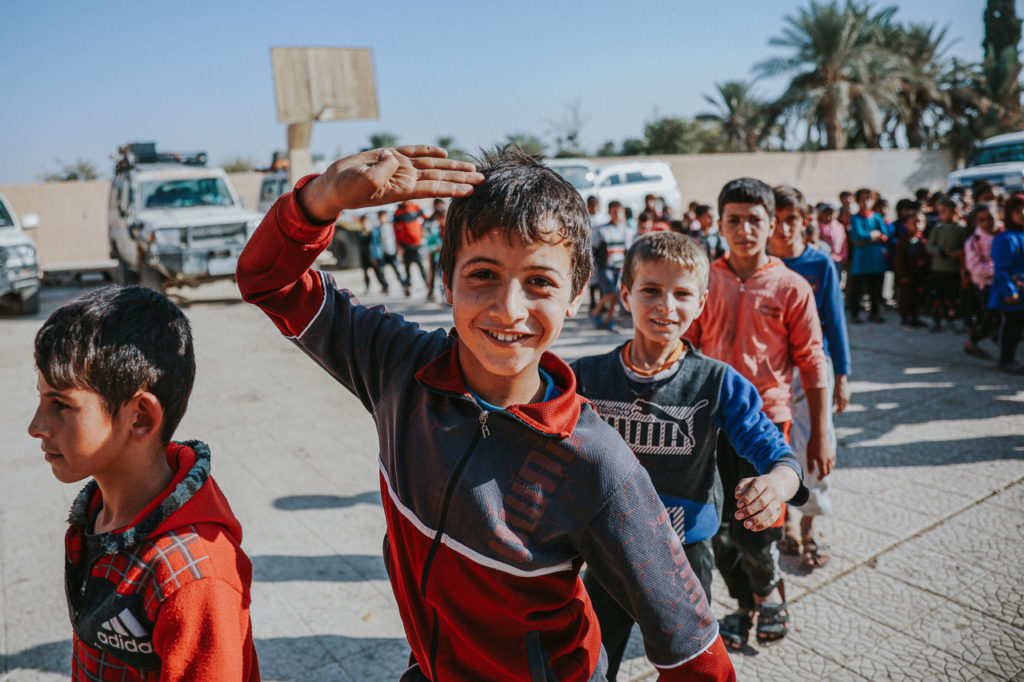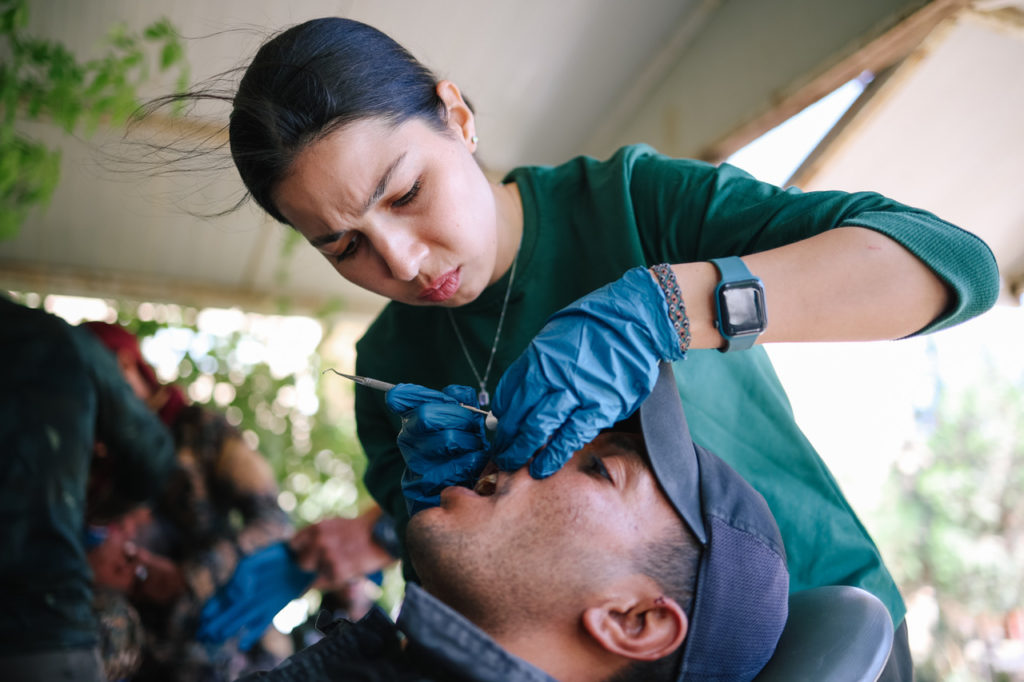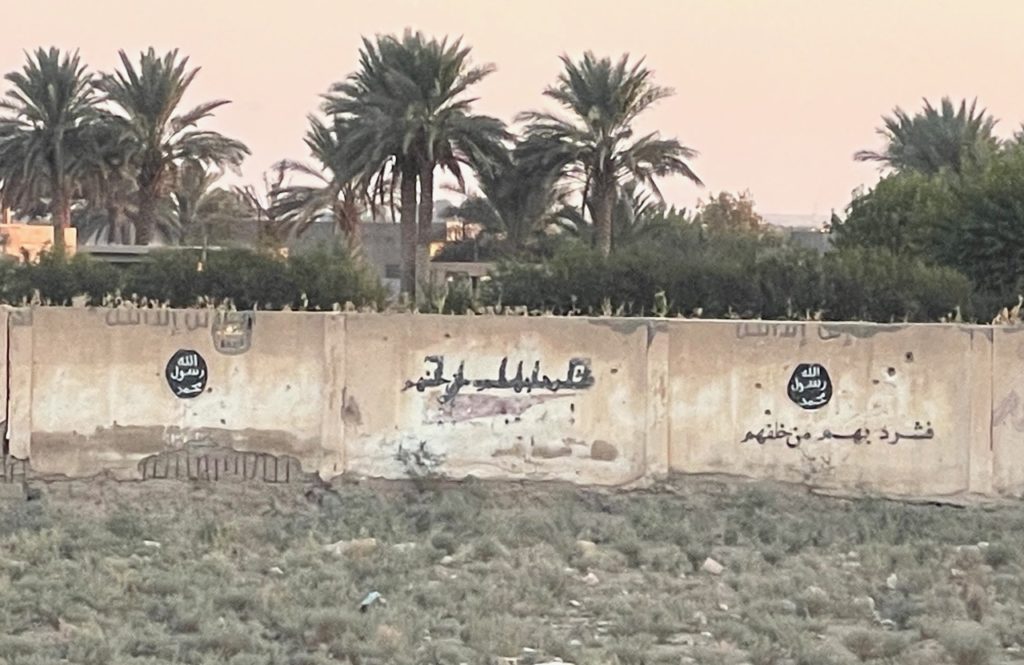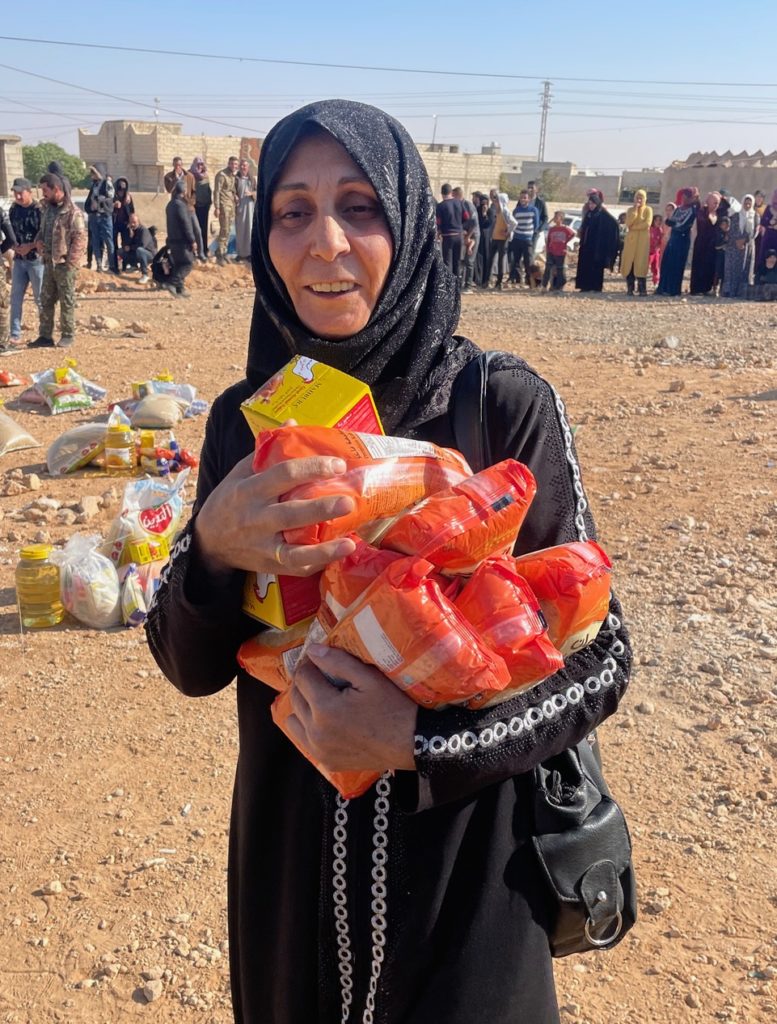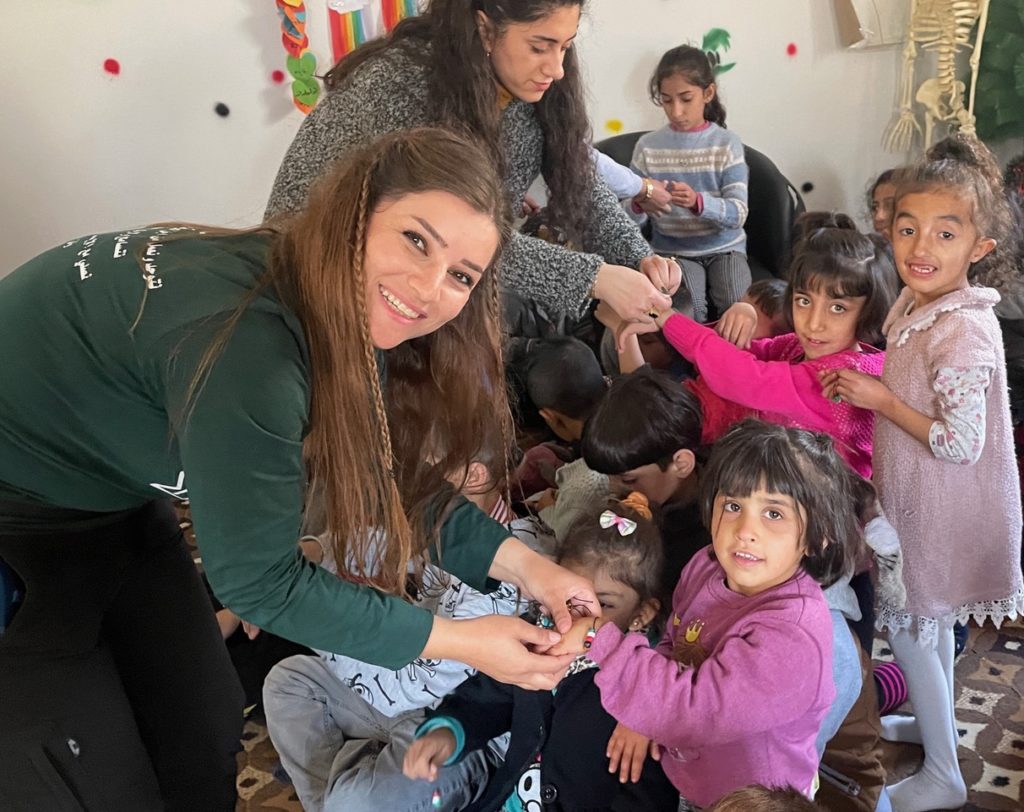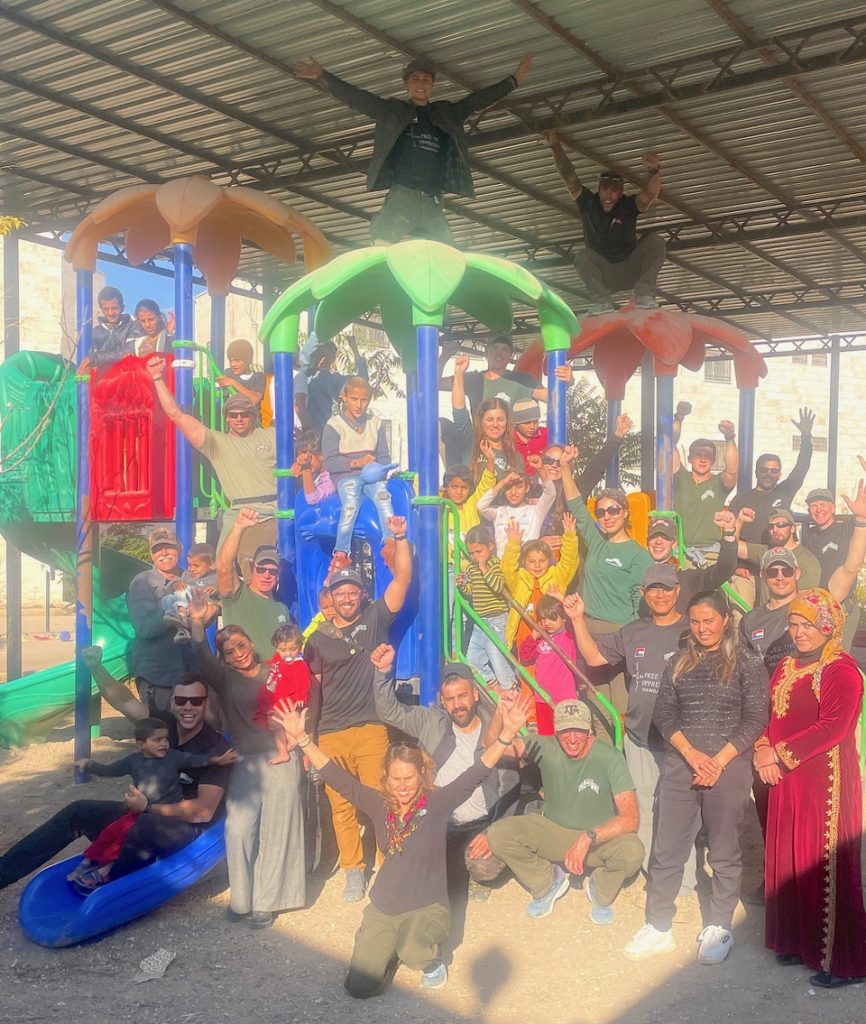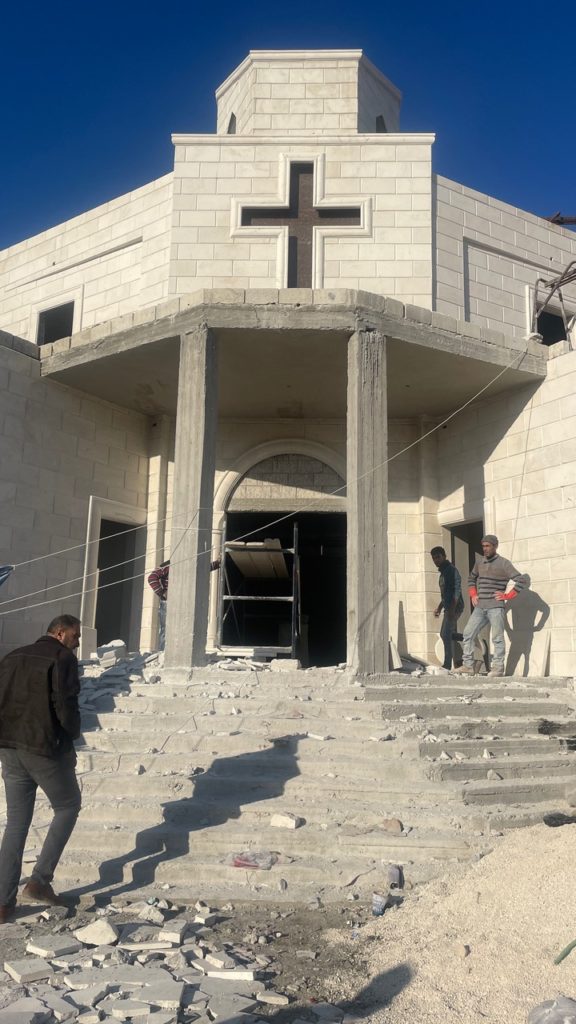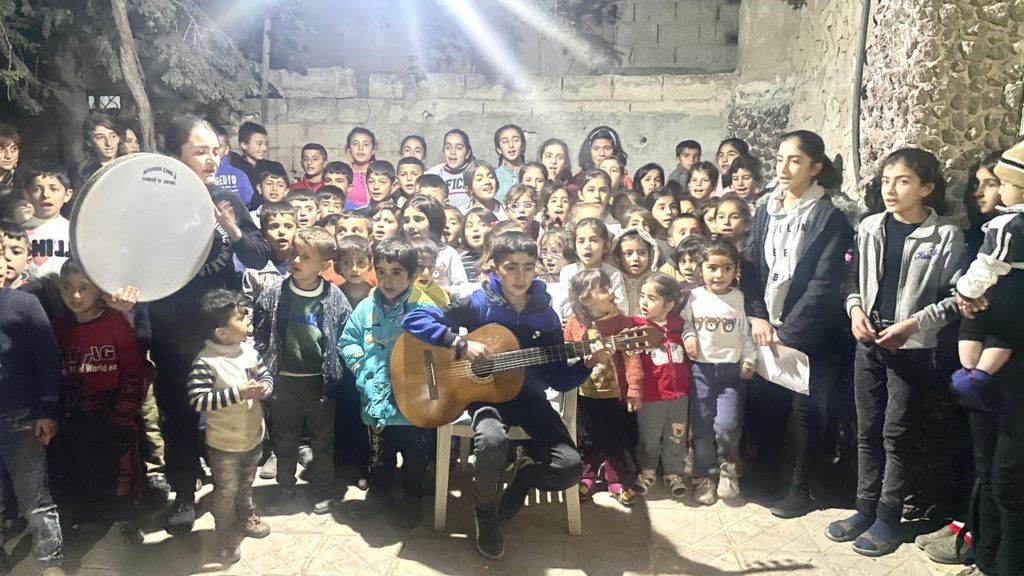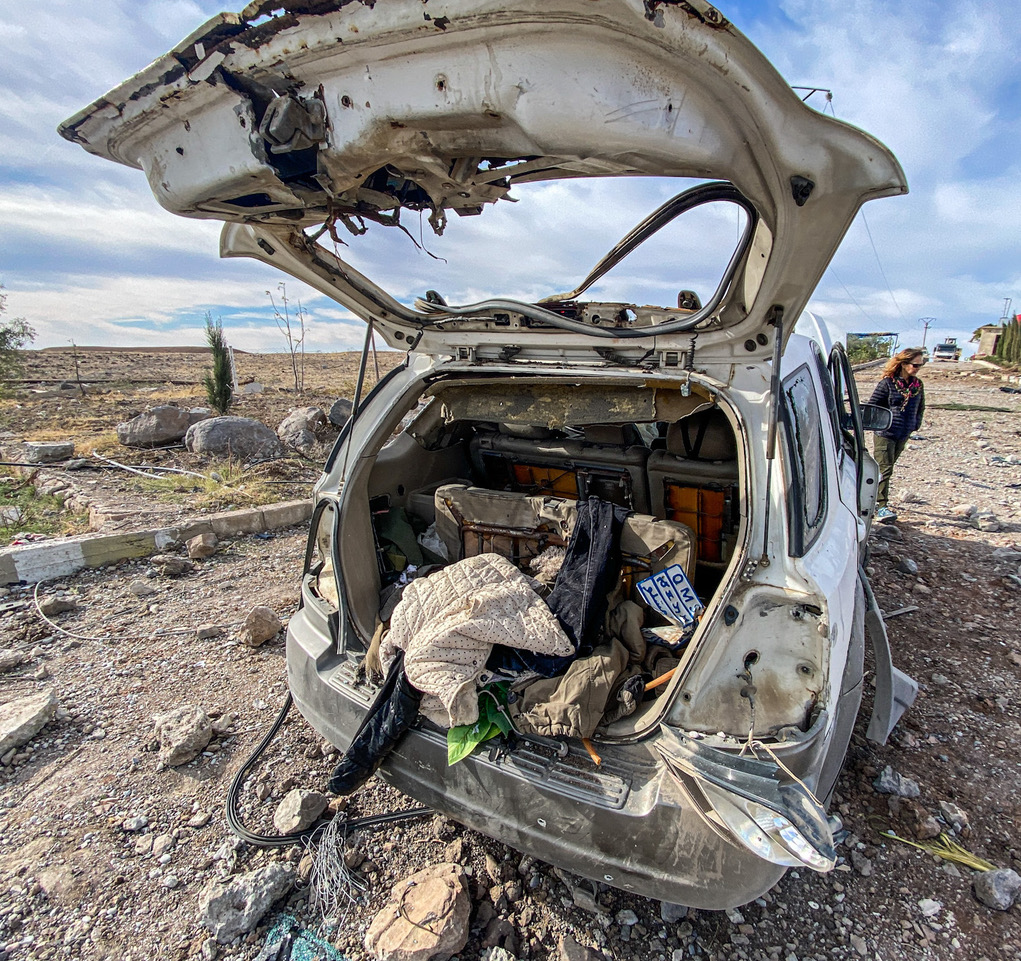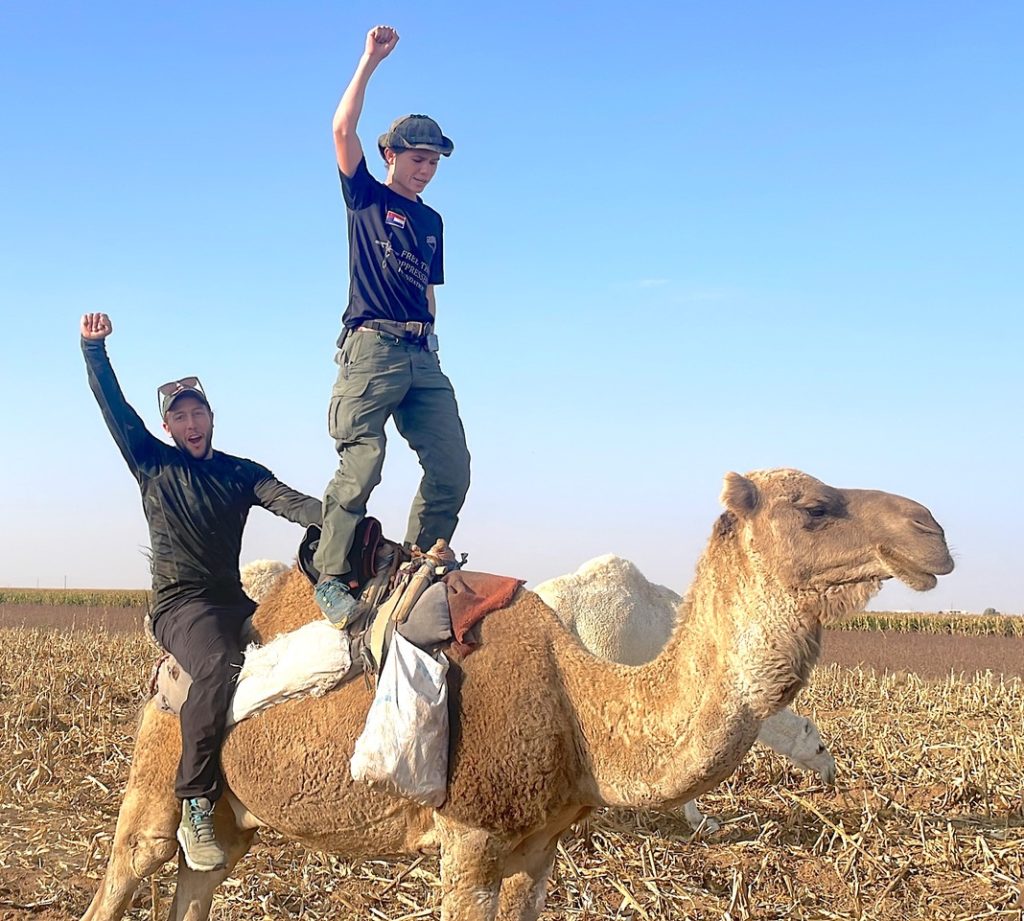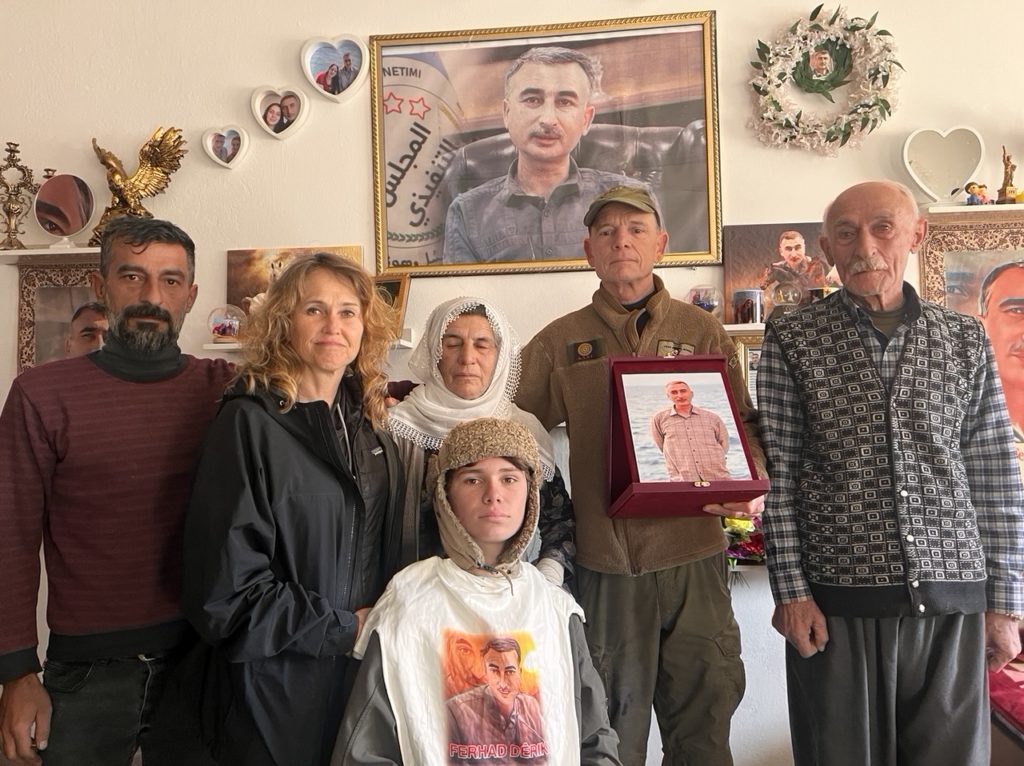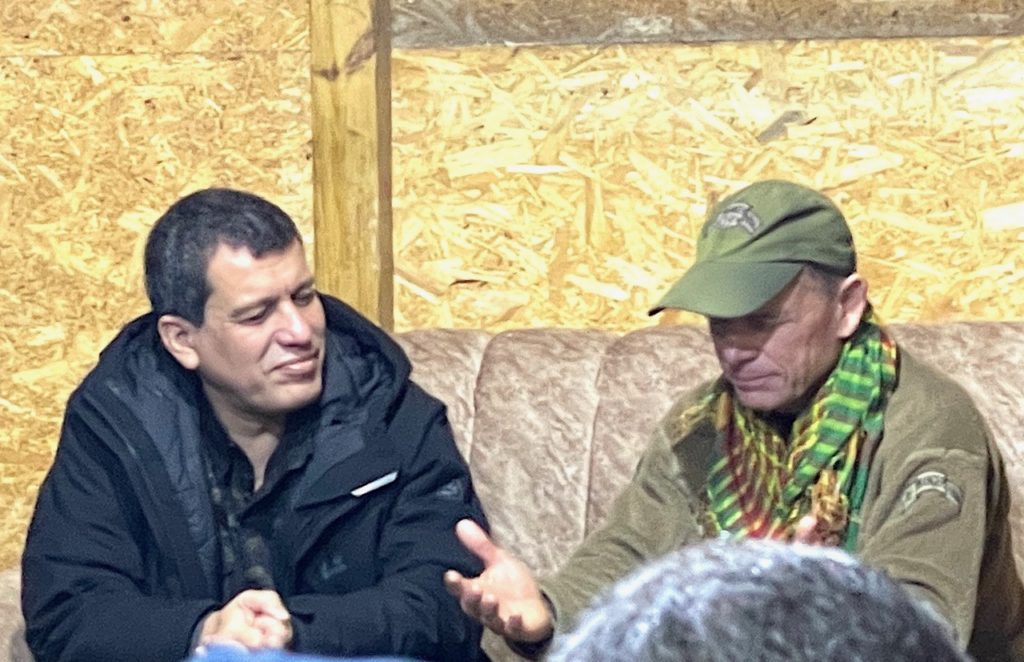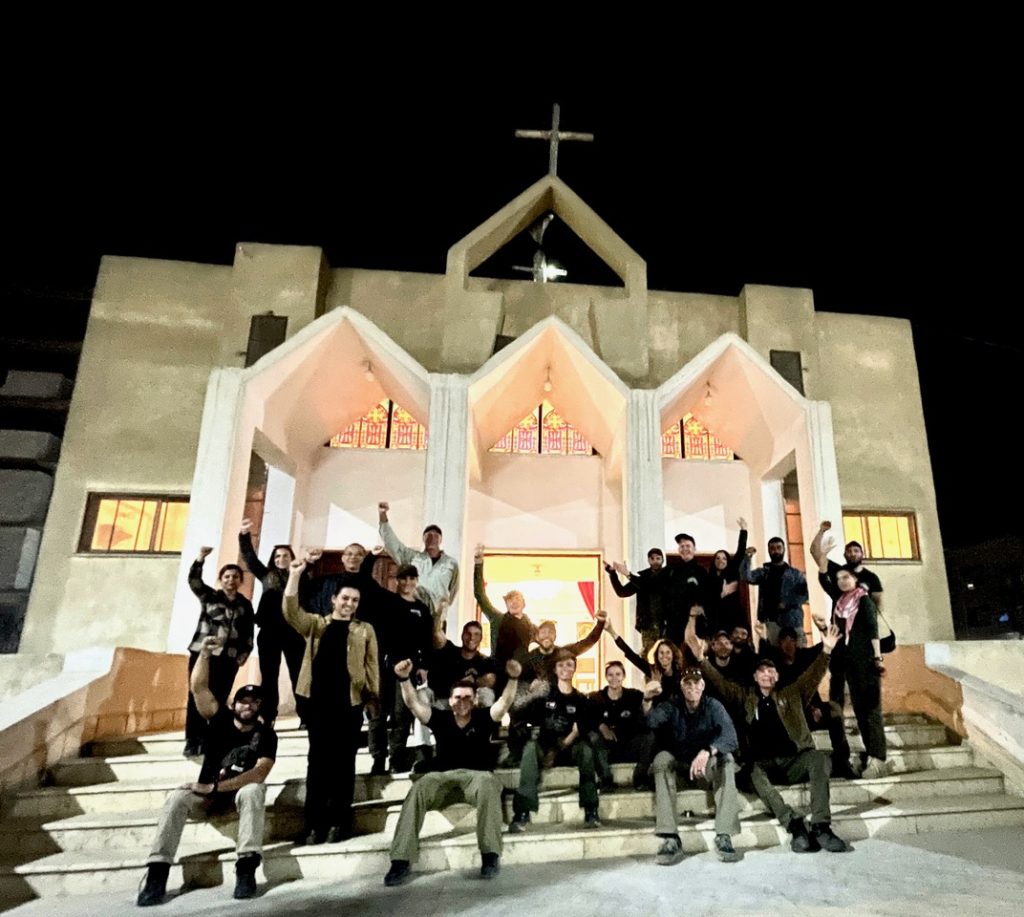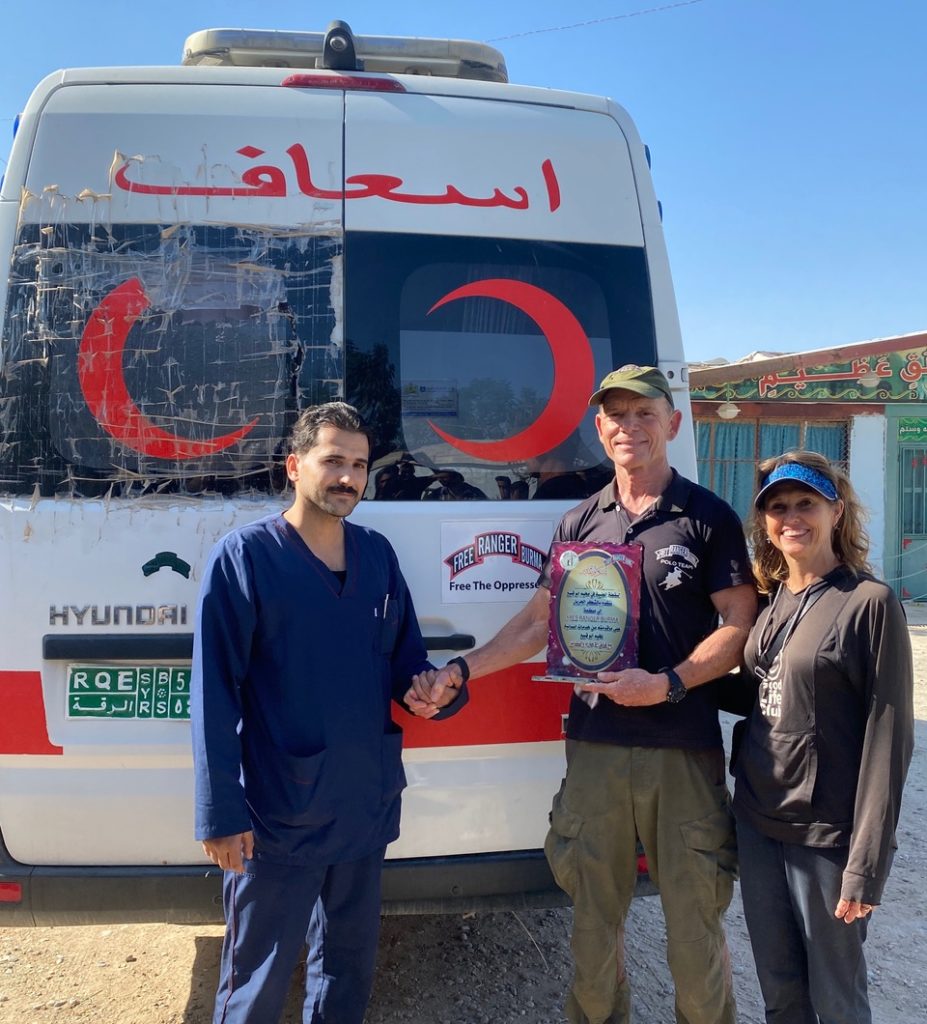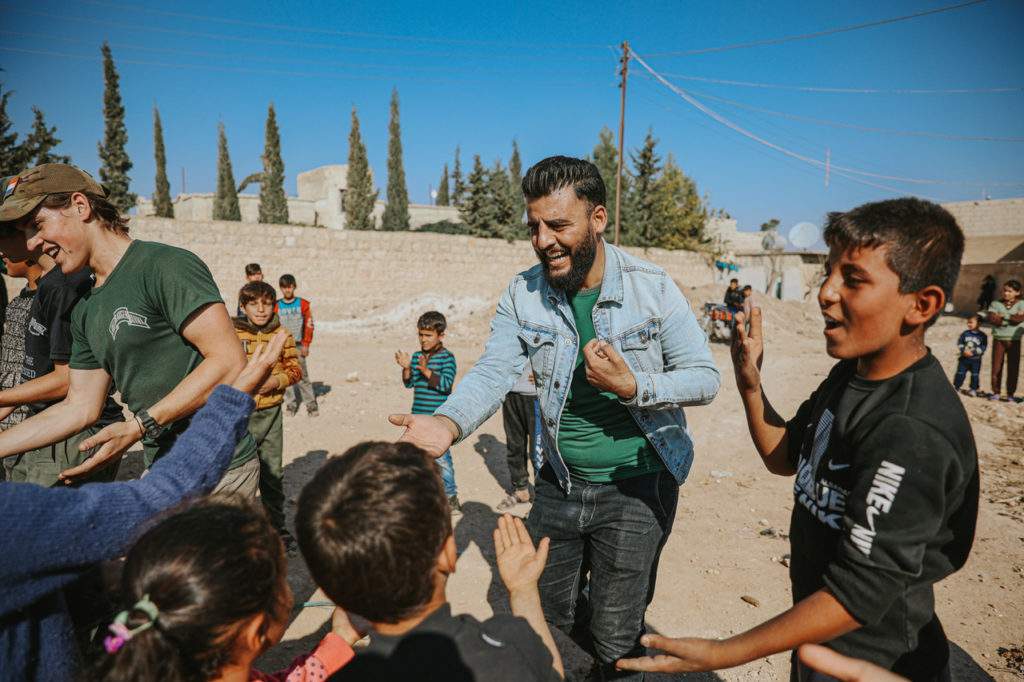Progress in Northeast Syria
13 February 2023
Syria
“I have learned to ask God for everything. And then after you ask God, you may ask your friends for help and see what happens. But trust God.” – Abdul Sattar, a teacher at a front-line school near Manbij in northeast Syria.
Because of these prayers, a school building and new toilets have been built at his school, which continues to be within range of enemy machine gun and mortar fire. In spite of the frequent attacks, Abdul Sattar, the teachers, parents, and the children keep the school open. Since the Turkish invasion of 2019, their school in Dadat, north of Manbij, has become a front line with the proxy forces of the Turks and the Turks themselves just across the Sajur River to the north. In spite of all the attacks, displacement, constant motion, loss of Abdul Sattar’s own home, he’s helped rebuild the school, add the new building, build toilets, start a well, and helped to put a roof on another new school that also was forced to flee. And, with the help of friends, he was able to buy a small apartment for his family in the city after his own home was taken by the Syrian Army. These are all miracles of God and God’s people helping.
These are the kind of miracles we see in northeast Syria. There is a new hope here, one that shines more broadly than I’ve ever seen it. In spite of the attempts by ISIS to destroy all of Syria, the Kurds, Arabs, and Christians, in a coalition called the Syrian Democratic Forces (SDF), have defeated them. ISIS still exists in pockets and has the ability to daily launch terrorist attacks and ambushes, but they control no terrain. And they have become visibly weaker than they were before.
Adding to the deadly challenge of fighting ISIS, the Turks and their proxies have launched multiple invasions into northern Syria in 2016, 2018, and 2019, displacing hundreds of thousands of Kurds, Arabs, Yezidis, and Christians. On top of this, the US broke its promise to stand with the Syrian Kurds and in 2019, at midnight on 9 October, left their positions along the Syrian-Turkish border. By four in the afternoon, the Turkish military and their proxies had invaded, driving hundreds of thousands of people before them. In spite of these terrible things, the SDF has not given up. They are protecting what they have and caring for the displaced people in abandoned schools, camps, and in shared homes.
We were surprised with new hope when we went down to Deir Ezzoir along the Euphrates River. Here we were told by the local Arab leader that 90% or more are still supporting ISIS.
Even so, in this area there is governance by the Syrian Democratic Forces, which has made inroads in trying to form an equitable, democratic, just society. Even though ISIS sleeper cells try to launch attacks in this area and, just across the Euphrates to the west are Assad’s forces, Russians, and Iranians, the SDF governance is growing. The fact that we could drive the entire length from Raqqa to Baghouz (which was the last stronghold of ISIS and is on the border of Iraq and Syria) and not come under attack was amazing. Even though ISIS has over 90% support in this area, the people here seem to be attempting to try and work with the SDF. And even though many Kurds and Arabs don’t trust each other very much, there is enough trust to work together. This is a new the beginning. To me, it’s a great hope, not only for northeast Syria, but all of Syria. This attempt at community-based governance, democracy, the upholding of women’s and children’s rights, and freedom of religion needs support. This is an area where Christians, Arabs, Muslims, Yezidis and others can live together in peace and justice.
This attempt at a just and free society is not present in other parts of Syria, and is not present in many parts of the Middle East. Against this emergent freedom, many forces have been arrayed.
To the south and the west, the Syrian Army wants to crush any independent movement not under Assad’s direct control. They are supported by the Russians, who use airplanes and heavy artillery to attack and kill anyone who opposes. The Assad regime is also supported by the Iranian government directly as well as Iranian militias that attack anyone opposing Assad. Another enemy is ISIS, which is still in the area, able to ambush, kill, and harass.
And then in the north, there are the Turks. Turkey is attacking regularly with jet aircraft, drones, and heavy artillery, killing men, women, and children in the SDF-controlled area of northeast Syria. They not only attack directly using their air force and artillery, they support a variety of jihadi proxy forces that still occupy large swaths of northeast Syria. As I write this, new attacks by Turkey are ongoing. During the week of 19-26 November, the Turkish air force conducted over 40 airstrikes. These strikes by Turkish war planes so far have killed over 40 people, including 11 civilians whose funeral we attended on 20 November.
This is evil and none of this is productive. It’s all about destruction, degradation and attack. I think that the most common, strongest motive for why countries are involved in northeast Syria is fear. Why is Iran involved? They have to cross all the way over Iraq to get involved. Again, I think it’s fear. They’re afraid of Israel. They’re afraid of other powers. They’re afraid of the world coming in on them, because they know they have a government and a tyranny that is not loved, not only around the world, it’s not loved by their own people. And I believe one of the reasons they want to stir up fighting in Syria, and attack Israel, among other places, is because they want an enemy that they can project and focus their people on so they can retain their grip on power, and make people in Iran really think this Iranian military is needed to protect Iran, when, actually, this form of government is not needed. It’s the worst thing Iran can experience.
Why does Assad lash out against everybody who opposes them in Syria, including northeast Syria? Because of fear, because he wants to retain his power. He’s not directly fighting the Kurds right now or the SDF, but the threat is there, once the other forces against them are eliminated. He’s already told the Kurds and the SDF, they must comply and come into his fold. Why are the Russians involved? I think fear again, too. They want a port in the Mediterranean, they want more projection of power to defend Russia. They want some kind of ally. Why is Turkey involved? Well, Turkey has over 20 million Kurds that have been repressed for centuries. They’re afraid of them. And what they see with the SDF is Kurds with power; they’re afraid of that. So these are all fear. In spite of this, the Syrian Democratic Forces operating under the self-administration of northeast Syria are still forging ahead with health care, schools, agriculture projects, roads, and the beginnings of a participatory political system. There needs to be a lot of improvement, but this effort to change has no chance if no one will defend it. The forces around northeast Syria are not just, not pro-democratic, not pro-women, and not pro-children. They are a collection of dictators, extremists, terrorists, and hate-fueled factions.
Supporting the SDF from the outside is a US-led coalition. But in talking to the local people here, they do not feel they can trust the US or the coalition. They feel they are being used. It is hard to assure them otherwise. Why did the US come in? It doesn’t seem that we suddenly decided we want to help the Kurds and other minorities here such as the Christians. In fact, they’ve labeled some Kurdish parties as terrorist parties. It seems to the people here that the US-led coalition came because they were afraid of ISIS. They did not seem to come out of love.
Down in Deir Ezzoir, along the Euphrates, we were in a meeting of over 70 local sheiks. One of the sheiks came up to me after the meeting and said, “Thank you for coming and we appreciate you being here. But why do the Americans launch all these raids against us and fly helicopters at night and scare our children? We’re not ISIS. Why do you treat us like we’re all ISIS? Are we guilty just because we are here? We’re not innocent until proven guilty. We’re just guilty. That really hurts us. It’s not right either. Please tell your government to stop that.”
And then talking to the Kurds, they said to us numerous times, “Yes, America is helping us. We’re really grateful. Please help us more. But we feel you’re really just using us. You don’t really care about us. You betrayed us multiple times, allowing the Turks to invade Afrin and saying nothing, breaking your promise and pulling your troops out of northeast Syria in 2019 and allowing those attacks to happen. And we feel you just want our oil, or you just want to stop ISIS, you don’t really care about us as people. So yes, we’re glad you’re here. But you don’t seem like friends.”
We are also close with the Christians, who are the smallest group here. Different Christians said to us, ”No one really cares about us. We are the smallest group; most of the Christians around here have fled. However, we can work with the SDF and we can compromise together. The SDF is the only way forward. And we hope America cares about its fellow Christians, because we are here a small minority in Syria.”
As an American I am grateful that the US and the coalition are here. This not only saves many lives and blocks major invasions, but also gives a chance for a new society to grow up together. The most powerful force in the world is love and if the US and coalition and all of us are led by love there will be a greater impact for good in Syria, the Middle East, and the world. One of the fruits of that will be the inability of groups like ISIS to have much support. Some of the reasons ISIS has any support is because there’s corruption, there’s inequality and a feeling there’s no real faith in God.
ISIS responds to all three with faith in a real God, with equality for everyone who believes, and a stated goal of no corruption and justice. Of course, ISIS is evil and violates all those things. But they have an appeal, just like the Taliban did in Afghanistan. They give hope, however false, that there’s something new and different.
We need to give a different hope. We need to give a hope grounded in love and actions of love. Actions of love do not preclude the use of force to stop attacks but whatever is based on love will be lasting. I pray we continue to support freedom in northeast Syria, and we work on faith in the living God of love.
So my appeal to all these countries is, you don’t need to be afraid of the SDF. You don’t have to be afraid of northeast Syria, they can be your friends, we can compromise together. The United States can act as a real friend, not just use the people of northeast Syria, but cooperate and work with them. Friendship has so much more power, and so much more benefit, tactically and strategically, economically, diplomatically, relationally, and for security.
As we see new lights, and new clinics and new schools coming up in northeast Syria, we pray that they’ll get the support they need to continue and grow. In Tabqa, across the Euphrates from Raqqa, I met a young boy who told me in great English, “I want to be a biologist and study in Japan, even though it sounds very unlikely and seems impossible. I will work hard to do it.”
It’s children like this who are the hope of northeast and all of Syria. They need help to fulfill their dreams.
Otherwise, they could easily fall under the oppression of Assad’s regime, under a resurgence of ISIS or under an onslaught of Turkish and proxy forces. Thank you for praying for another way that is of love and truth and reconciliation.
Thanks and God bless you,
Dave, family and FBR
